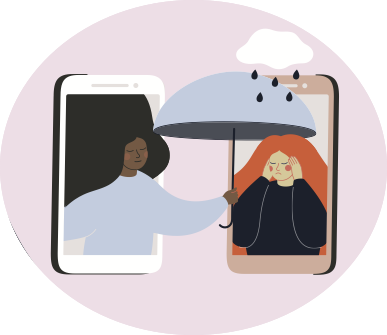What Is Atypical Anorexia Nervosa?
 Atypical anorexia nervosa includes all the signs and symptoms of anorexia nervosa with the exception that those with atypical anorexia are not underweight.
Atypical anorexia nervosa includes all the signs and symptoms of anorexia nervosa with the exception that those with atypical anorexia are not underweight.
In fact, people with atypical anorexia are within or above what is considered a normal weight range. As is characteristic of all types of anorexia, they’ve undergone significant weight loss due to restrictive caloric intake. Having atypical anorexia nervosa doesn’t mean you require any less help or treatment than those with typical anorexia.
Traditionally, eating disorders like anorexia has been characterized by low body weight. However, in the American Psychiatric Association’s Diagnostic and Statistical Manual (DSM-5), published in 2013, atypical anorexia was included in the category Other Specified Feeding or Eating Disorders (OSFED).
Diagnostic Criteria
Diagnostic criteria for anorexia include:
- Taking in an inadequate number of calories
- A fear of gaining weight
- Beliefs that body size impacts self-worth
Atypical Anorexia Is Often Misdiagnosed or Overlooked
Even though people who have atypical anorexia show the same symptoms as people with anorexia, the fact that they’re not underweight leads to people overlooking or misdiagnosing them.In fact, parents and doctors may even praise the weight loss of those with atypical anorexia because, even though the speed with which they’ve lost the weight is unhealthy, they don’t “look” sick or emaciated.
However, it’s important to note that we can’t necessarily see if someone is sick—not from their body, shape, or appearance.
Atypical Anorexia Nervosa Symptoms
In many cases, because there’s such a strong association between anorexia and low body weight, people with atypical anorexia are often overlooked. In addition, those who have atypical anorexia may point to their body weight to prove they aren’t sick.
However, there are a number of symptoms of atypical anorexia (and typical anorexia) that aren’t based on an individual’s size or shape. These include:
- Excessive focus on body weight
- Fear of gaining weight or having fat
- Exercising excessively
- Weight impacts self-worth
- Preoccupation with food and a refusal to eat certain foods
- Refusing to eat socially
- Making excuses for not eating
- Increased irritability, mood swings, and other difficulties regulating emotions
- Difficulty concentrating
Consequences of Atypical Anorexia Nervosa
Because these symptoms are so often overlooked, those with atypical anorexia are often sicker for a longer period of time and are less likely to get the focused treatment they need.
Research has shown that adolescents with atypical anorexia who are overweight or have obesity are just as likely as those with anorexia to suffer from low heart rate and a rapid rise in heart rate when standing up.
The mortality rate among those with anorexia is six times higher than that of people without anorexia, and although there is less research on those with atypical anorexia, given the similar medical consequences, it’s likely the mortality rate for people with this condition is equally high.
Meanwhile, research shows that people with atypical anorexia often exhibit greater eating disorder psychopathology, including distress around body image and eating, than people with anorexia.
Atypical Anorexia Nervosa Treatment
The sooner someone with atypical anorexia nervosa seeks and receives treatment, the more likely they are to recover.
However, due to the perception that people of normal, overweight, or obese body weights cannot have eating disorders, it may be challenging to get the care they need.
Excerpted from “What Is Atypical Anorexia Nervosa?” from Verywell Mind. Read the full article online.
Source: Verywell Mind | What Is Atypical Anorexia Nervosa?, https://www.verywellmind.com/what-is-atypical-anorexia-nervosa-5443014 | Ⓒ 2022 Dotdash Media, Inc
A screening can help you determine if you or someone you care about should contact a mental health professional. CHC teletherapy services are available now. Call or email our Care Coordinators at 650.688.3625 or careteam@chconline.org to set up a free 30-minute consultation appointment.





